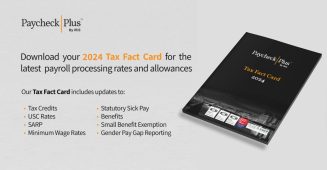Zero Hour Contracts | Possible Legislation Change & Payroll Impact
A new bill has been published that seeks to ban Zero Hour Contracts in Ireland. Find out what exactly a Zero Hour Contract is, when it may be prohibited, what impact it will have on employers and how it will effect payroll professionals.
What is a Zero Hour Contract?
A Zero Hour Contract, sometimes written as “0 Hour Contract” and occasionally referred to as an “If and When” contract, is an employment contract that does not specify an employee’s working hours but requires the employee to be available to work when needed/desired by the employer. Read Section 18 of the Organisation of Working Time Act, 1997 for more details.
Prohibition of Zero Hour Contracts
The Irish government is seeking to prohibit Zero Hour Contracts (with the exception of genuine casual work, emergency cover or short-term relief work for the employer) through the bill “Employment (Miscellaneous Provisions) Bill 2017” which is currently, as of writing this article, before Dáil Éireann (in the Second Stage). View the current status of the bill here: status of Employment (Miscellaneous Provisions) Bill 2017. It is anticipated that the bill will pass in 2018 and amendments may be implemented before it becomes law.
Impact of Zero Hour Contract ban on Employers
According to Maeve McElwee (Ibec Director of Employer Relations):
The Bill as drafted will have significant adverse consequences. It will deprive employees and employers of the ability to make their own flexible working arrangements and to adapt to change collaboratively.
Ibec also highlighted the following negative consequences that may arise from the bill:
– it will likely act as a deterrent to varying employees’ hours, even at their request
– present challenges in health and social care, where it can be difficult to reasonably know the work requirement within the short timeframes proposed for providing core terms
– impose disproportionate cost and administrative burden incurred in determining the “normal working day” and “normal working week” for every employee, including salaried employees.
Source: ibec.ie
Another significant concern for employers is the potential for criminal prosecution if the bill is not adhered to.
Impact of Zero Hour Contract ban on Payroll Professionals
Payroll professionals running payrolls with employees on Zero Hour Contracts would no longer have to complete compliance checks, calculations for, and processing of compensation for employees that were not required to work at least 25% of their agreed available hours.
However, payroll professionals must verify that the employees on their payroll with Zero Hour Contracts will not fall under the exceptions. Zero Hour Contracts will be prohibited in all circumstances except
in cases of genuine casual work or where they are essential to allow employers to provide cover in emergency situations or to cover short-term absences. This flexibility would be required in residential care settings, for example, where a member of staff must accompany a resident in the care facility to hospital at short notice and an appropriately qualified substitute worker needs to be called in to cover the absence.
Source: welfare.ie
If the Employment (Miscellaneous Provisions) Bill 2017 passes in its current state, Zero Hour Contracts (in most cases) will be prohibited and another crucial aspect of the bill will be enforced, called “banded hours”. The “banded hours” provision will have an impact on the payroll profession – we will go into more detail on this in a future article, so stay tuned! Follow us on LinkedIn, Facebook and Twitter or subscribe to our newsletter (in the footer below) to stay up-to-date with payroll industry news and to get tips and insights from payroll specialists.
Ensure Compliance
Ensuring compliance with the most up-to-date legislation is a difficult and time consuming endeavour for most businesses, but one that is necessary to avoid the imposition of significant penalties. The workload of keeping up-to-date with the ever-changing regulations and implementing the required compliance tasks can be significant, especially if personnel have an already heavy workload. This is one of the many reasons more and more businesses are outsourcing their payroll function. Ensuring payroll compliance in the coming years will be made extra difficult and time consuming due to the upcoming auto enrolment pension scheme, the upcoming GDPR regulations, expected updating of legislation as a result of Brexit and due to PAYE modernisation.
For More on Zero Hour Contracts and related Legislation Read:
What is the Revenue On-Line Service?
ROS (Revenue Online Service) is the method by which Revenue is delivering its interactive customer services electronically to the customer. New…
Paycheck Plus, Your Award Winning Irish Payroll Service
Here at PaycheckPlus we provide a complete payroll service that ensures compliance with the most up to date legislation. Our payroll experts stay on the forefront of the payroll industry so you don’t have to. We handle compliance and payroll processing allowing businesses to become more efficient – we do the paperwork so businesses can focus on their profits.
To ensure payroll compliance with the most up to date legislation and for expert support contact PaycheckPlus today.
For more information on our payroll services simply request a callback now or call our office on 041-9892100. Alternatively, request a quote here.


